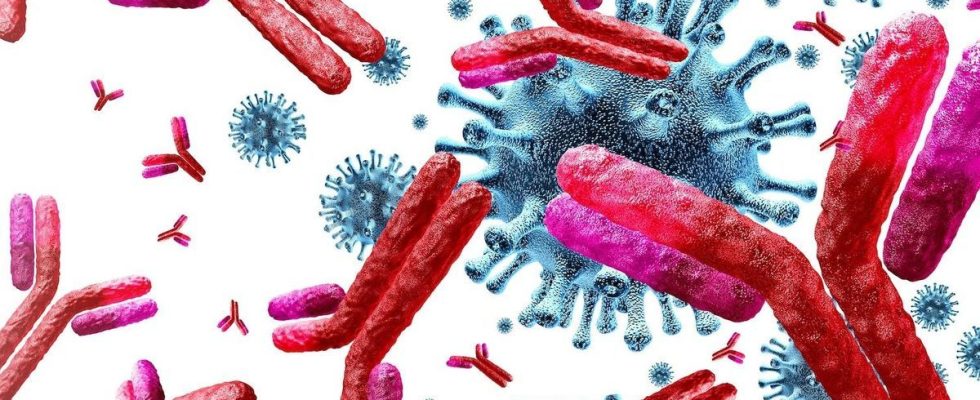Published on
Updated
Reading 2 mins.
Yellow fever is a disease caused by a virus transmitted by certain mosquitoes to humans. If there is a vaccine to prevent the disease, currently no treatment is able to cure it. To remedy this, American researchers are working on a remedy that would cure the fever using antibodies made in the laboratory.
Every year, the yellow fever virus infects 200,000 people worldwide and kills around 30,000. Despite the existence of a vaccine since the 1930s, yellow fever remains endemic in tropical and subtropical areas of Africa and South America, where vaccination coverage is low. With climate change, yellow fever is likely to be more common, as warming is expected to expand hot, humid areas, breeding grounds for mosquitoes that spread the virus. Yellow fever deaths are estimated to increase by 25% by 2050 in Africa.
Researchers from the University of Science and Health of Oregon (United States), in collaboration with George Washington University are working on a treatment capable of curing people infected with the yellow fever virus. Their workspublished in the journal Science Translational Medicine, suggest that a single infusion of monoclonal antibodies would be enough to strengthen the body to fight against the disease.
The team started by looking at 37 cloned antibodies from people vaccinated against yellow fever. It ultimately focused on two monoclonal antibodies capable of controlling virus variants implicated in recent yellow fever outbreaks. Then, the scientists tested the effectiveness of these antibodies with two animal species, the rhesus macaque and the hamster. After exposing the animals to the virus, the researchers divided them into three groups. One of the groups received the first antibody, another the second and the last received no infusion.
Animals that received either antibody had no trace of the virus in their blood, unlike those in the control group who developed the disease. Among the cured animals, none showed hepatic dysfunction, a sign of the presence of the virus in the body.
“By showing such efficacy in a primate model that mimics severe human disease, we hope to move this into clinical trials and be ready to deploy treatments for the next yellow fever outbreak.“said one of the study’s authors, Michael Ricciardi, associate director of translational research at George Washington University and director of product development at Mabloc, in the Press release.
These initial results must now be confirmed in humans through a future clinical trial. These lab-made antibodies appear, for now, to be a serious lead as a treatment for yellow fever for unvaccinated people who get sick or for the rare people who trigger a reaction to the vaccine.
